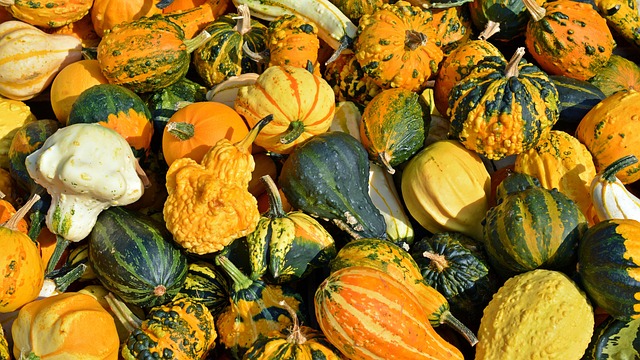Yard Waste Removal and Recycling services are gaining popularity among homeowners for their environmental benefits, including reducing waste sent to landfills, mitigating harmful gas emissions, and creating nutrient-rich compost or mulch that improves soil quality. Efficient leaf collection involves using suitable tools, regular scheduling, and proper sorting. Mulching transforms yard waste into valuable resources, enriching soil health and promoting sustainable yard management by reducing the need for chemical fertilizers. Organic mulches like wood chips and straw, as well as inorganic options like stones and gravel, serve diverse landscaping needs. The environmental benefits of mulching and composting include suppressing weeds, conserving moisture, releasing nutrients, and reducing landfill waste that produces methane. Effective leaf mulching involves collecting dry leaves, mixing balanced nutrient leaves, applying a 2-3 inch layer around plants, maintaining equipment, and composting collected leaves for sustainable gardening practices.
“Transform your yard waste into valuable resources with efficient leaf collection and mulching practices. This comprehensive guide explores the art and science of yard waste management, highlighting its environmental benefits as a sustainable solution for home owners.
From understanding the importance of local yard waste removal to mastering the process of leaf collection, we’ll navigate you through every step. Discover how mulching isn’t just recycling; it’s a natural process with diverse applications. Uncover the types of mulch and their unique advantages, all while learning about the positive environmental impact.”
- Understanding Yard Waste Collection and Its Benefits
- The Process of Efficient Leaf Collection
- Mulching: A Natural Solution for Yard Waste Recycling
- Types of Mulch and Their Applications
- Environmental Impact of Mulching and Composting
- Tips for Effective Leaf Mulching and Maintenance
Understanding Yard Waste Collection and Its Benefits

Many homeowners often wonder about the process of yard waste collection and its advantages for their properties. Understanding this service is essential, especially as it contributes to a greener environment. Yard waste removal involves the collection and disposal of organic materials like leaves, grass clippings, and branches from residential areas. This practice is becoming increasingly popular due to its environmental benefits and efficient management of space.
By opting for yard waste recycling, residents can reduce the amount of debris ending up in landfills. Organic waste decomposition releases harmful gases, but recycling allows for a more sustainable process. Mulching, which is often paired with collection services, involves transforming this waste into nutrient-rich compost or mulch, enhancing soil quality and providing a natural alternative to synthetic fertilizers. This holistic approach ensures that yard waste becomes a valuable resource, fostering a healthier ecosystem within the neighborhood.
The Process of Efficient Leaf Collection

The process of efficient leaf collection involves several key steps aimed at both maintaining a clean and organized environment while promoting yard waste removal and recycling. Initially, it’s crucial to equip yourself with appropriate tools such as rakes, leaf blowers, or vacuum cleaners designed for this task. Regularly scheduled collection times, often during the fall season when leaves are most abundant, help in ensuring a systematic approach.
As leaves are gathered, proper sorting becomes essential. Dry, crisp leaves can be easily composted or used for mulching, reducing yard waste sent to landfills. This step also allows for separating any debris or non-leaf materials that may have mixed in during collection. Efficient leaf management not only keeps landscapes clean but also contributes to sustainable practices by encouraging recycling and minimizing environmental impact through responsible yard waste removal.
Mulching: A Natural Solution for Yard Waste Recycling

Mulching is an eco-friendly practice that transforms yard waste into a valuable resource, offering a natural solution for efficient yard waste removal and recycling. By leaving organic material, such as leaves, grass clippings, and twigs, on the ground as a protective layer, mulching enriches soil health. This simple technique helps in decomposing over time, providing essential nutrients that support plant growth and improve overall soil structure.
It is an effective strategy for homeowners and landscaping professionals alike to reduce piles of waste typically generated during seasonal changes. Instead of discarding these materials, mulching allows them to break down naturally, fostering a healthier garden ecosystem. This process not only minimizes the need for chemical fertilizers but also contributes to a more sustainable and environmentally conscious approach to yard waste management.
Types of Mulch and Their Applications

Different types of mulch offer various benefits and applications for your yard or garden. Organic mulches, such as wood chips, straw, and compost, are derived from natural sources and gradually decompose, enriching the soil with essential nutrients. They’re ideal for landscaping beds, gardens, and around trees, helping to retain moisture, suppress weeds, and improve soil structure over time.
In contrast, inorganic mulches like stones, gravel, and recycled rubber come from non-biodegradable materials. These options are perfect for walkways, driveways, or areas needing erosion control as they don’t decompose. They also offer year-round aesthetics without the need for replacement, though they may require more initial investment. Additionally, recycling yard waste through mulching practices is an effective method of sustainable Yard Waste Removal and Recycling, contributing to a greener environment.
Environmental Impact of Mulching and Composting

The environmental impact of mulching and composting is a significant aspect of sustainable yard waste removal and recycling. Mulch, derived from organic materials like wood chips or straw, plays a crucial role in preserving soil health by suppressing weeds, maintaining moisture, and providing essential nutrients as it decomposes. This natural process reduces the need for synthetic chemicals often used in weed control, thereby minimizing pollution and protecting local ecosystems.
Composting, on the other hand, is an efficient way to transform yard waste into nutrient-rich humus that can enhance soil fertility. By recycling organic matter from lawn clippings, leaves, and garden trimmings, composting reduces the amount of waste sent to landfills, where it contributes to methane emissions. Instead, this process allows for the creation of a valuable resource that can be used to improve soil structure and promote healthier plants, ultimately fostering a more sustainable and resilient landscape.
Tips for Effective Leaf Mulching and Maintenance

Effective leaf mulching is an eco-friendly practice that benefits your yard’s health and appearance. Start by ensuring proper timing; collect leaves when they’re dry to avoid spreading diseases and allow them to compact, making them ideal for mulching. Next, consider the type of leaves you’re using. A mix of deciduous and evergreen leaves provides a balanced nutrient profile. Avoid over-applying mulch, as it can smother plants and create an environment conducive to pest and disease growth. Aim for a 2-3 inch layer around plants and trees, focusing on areas where weeds tend to grow.
For optimal results in yard waste removal and recycling, maintain your mulching equipment regularly. Sharpen mower blades to ensure clean cuts, preventing damage to leaves and roots. Keep your mower deck free of debris to enhance air circulation, ensuring efficient breakdown of leaf material. Consider composting a portion of your collected leaves to create nutrient-rich soil amendments for future landscaping projects or garden beds. This reduces the amount of yard waste sent to landfills and fosters a sustainable approach to gardening.
Leaf collection and mulching not only significantly reduce yard waste but also offer numerous environmental benefits. By understanding the efficient processes involved, choosing suitable mulch types, and implementing effective maintenance tips, you can contribute to a greener, more sustainable neighborhood. Embrace these practices for a beautiful, eco-friendly landscape that minimizes waste and maximizes resource recycling. This holistic approach to yard waste removal and recycling ensures a healthier environment while enhancing the aesthetics of your outdoor space.



